
I created a list of my 50 favorite films of the 2010s, and I've split it into three parts. Today, I share my picks for #31-50. But, first, a bit of self-reflection:
When the clock struck 2020, every film critic and film review outlet magically produced their best of the 2010s list, that is if they hadn't already. Sifting through so many of them made me feel entirely like a "basic" film fan. That is to say, there is an awful lot from the margins of the past decade that I still haven't seen or, in some cases, even heard of. Moreover, when I see a culture writer like Tre'vell Anderson using their platform and "best of the decade" list to nakedly proselytize for works made by people of color and/or films which speak to the LGBTQ experience I am made more keenly aware of my comparative lack of a strategy. If I'm not evangelizing about the kinds of films I want to see more of, then what am I even doing here.
That feels indicative of the 2010s, though. When the decade began, movies were still ultimately just movies - entertaining, sometimes moving, often forgettable, occasionally debated on Fox News (remember the whole " The Muppet Movie is anti-right wing propaganda" fiasco?), rarely controversial beyond that. Here at the dawn of the new decade, however, films are culture war proxies, opening salvos in our ongoing argument over how fucked the world is and what the heck we can do about it. It's a byproduct of what social media has done to the way we communicate but also an end result of an entire decade of revolt. As Vox put it, "The seminal events of the 2010s felt like a collective 'no' to the entire system."
That's how we started the decade with a relatively stable film business and ended it with the industry in the midst of revolution, forever disrupted by Silicon Valley and on course to be majority-owned by Disney. With this disruption, however, there's been a lot of good, like more and more films coming from people of color and women as well as from the booming international film scene. All of that hopefully serves the larger goal of giving us better stories from new points of view. The documentary, enabled by how much easier it is now to commercially buy everything you need to make a movie, has exploded in popularity, meeting our newfound need to better understand our quickly-changing world. Marvel has shattered what we ever thought was possible with blockbuster, long-form storytelling. And several of our best directors rose to the anxieties of the decade and offered up films worth talking about.
In contemplating the films I liked the most, I feel self-critical. I could have done more this past decade to seek out those films that never made it to movie theaters, but at the same time sometimes I want nothing more than to escape to a theater and have fun with a movie. As a result, my top 50 probably has some head-scratchers on it and credibility-damning omissions. Par for the course, I suppose. But did everyone put Anchorman 2 on their list? Yeaaaaahhhh, hear me out:
50. Anchorman 2 (2013)
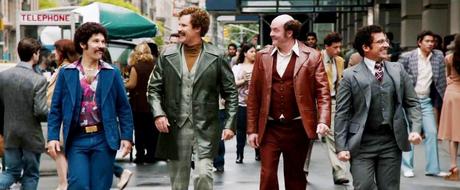
Every decade offers its own supply of "dumb" comedies which never make it on best-of lists but end up being watched over and over again whenever they pop up on TV. Some regard them as guilty pleasures, others as films entirely worthy of admiration and enjoyment. After all, they always say comedy is harder to get right than drama, and when a good comedy comes around it should be praised. In the 2010s, that meant movies like Bridesmaids, Girls Trip, Popstar: Never Stop Never Stopping, and Game Night. All of them, I admit, are better movies than Anchorman 2, yet I found such a comfort in Adam McKay and Will Ferrell's weird mix of absurdity and blunt social commentary. They took an admirable stab at satirizing the birth of the 24-hours news era, and while the end result is ultimately more of the same from the first film but slightly less funny it's still pitched at exactly my speed for silly, no-think comedy.
49. Weiner (2016)
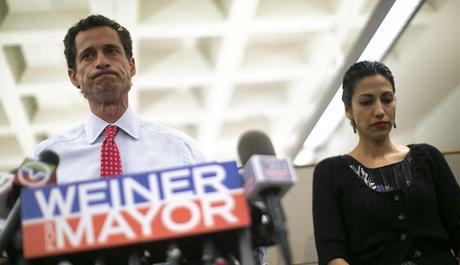
The decade didn't exactly lack for fantastic documentaries that explained why the world was going to shit; Weiner is the only one that did that AND inadvertently captured the exact moment the FBI started its investigation of Hilary Clinton's emails. All because a sex-addicted, deluded politician couldn't change his stripes and managed to bring his wife/Clinton senior aide Huma Abedin down with him in the process AND foolishly invited a couple of documentarians to offer a fly-on-the-wall view of his slow-motion meltdown. Whenever you wonder why the Democratic Party went into the latter half of the decade lacking obvious new superstars, watch Weiner and remember that so many of the next great hopes of the past decade turned out to have a Carlos Danger or two in their closet. As such, this doc plays like an especially outlandish and hilarious series of Veep episodes, but, sadly, it's entirely real.
48. A Simple Favor (2018)
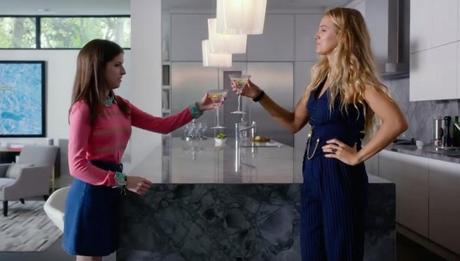
The logline here doesn't necessarily portend greatness: A mommy vlogger ends up in the middle of the exact same kind of true crime story she'd normally love to read about and while the experience is understandably disorienting she eventually gets to work on solving the missing-persons crime, which, of course, evolves into a series of increasingly insane twists. However, when that vlogger is played by Anna Kendrick, the mysteriously missing woman by Blake Lively, and the suspicious husband by Henry Golding, and you have Paul Feig behind the camera at his most restrained you have the recipe for a deliciously entertaining re-affirmation parody of the type of true crime story that became so popular in the 2010s.
47. Django Unchained (2012)
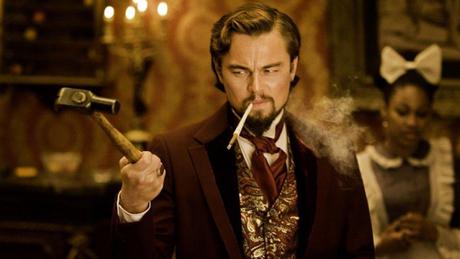
Tarantino's take on the exploitation revenge western genre has its issues - like, I dunno, Tarantino inserting himself in the story and committing the worst Australian accent in cinematic history - but is still chock full of standout performances and killer sequences. We forget how shocking it was to see DiCaprio play a villain as vile as Calvin Candie. The downside might be that Tarantino has struggled to leave Django behind. In both Hateful Eight and Once Upon a Time In Hollywood, you see signs of a director who can't quite bring himself to quit the western.
46. What We Do in the Shadows (2015)
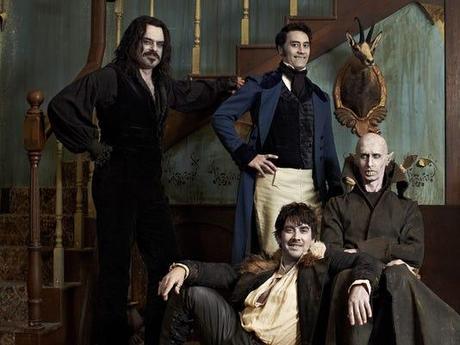
What would The Real World look like if everyone in the house was an ancient vampire with a limited concept of what the modern world is really like? The answer lies in What We Do in the Shadows, Taika Waititi and Jermaine Clement's hilarious depiction of dysfunctional roommates who just happen to also be poorly socialized bloodsuckers with a longstanding feud with a neighboring werewolf clan.
45. The Witch (2016)
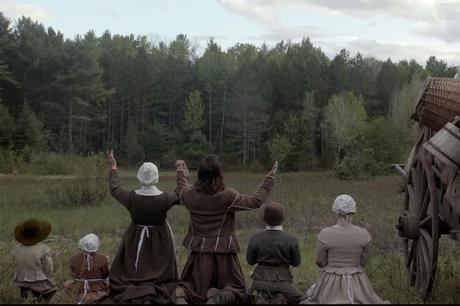
It's not often that a promising new horror director comes along and cites an obscure 1922 classic like Häxan: Witchcraft Through the Agesas the direct inspiration for his debut film, but that's exactly what happened with Robert Eggers and The Witch. He also pulled from Bergman and Kubrick to create one of the premiere examples of 2010s unique new subgenre: "elevated horror." In truth, that's just a phrase film critics made up to sort the horror that shouts "Boo!" from the horror that fills you with a neverending sense of dread. Few films were better at the latter than The Witch.
44. Wonder (2017)
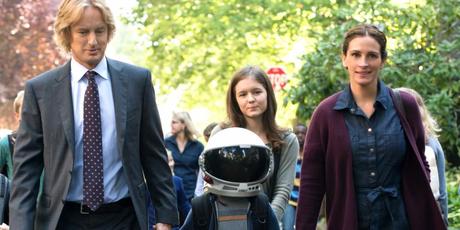
Every generation gets its own batch of inspirational films that champion the outsider and use just about every sentimental trick in the process. The rare few do so while somehow also feeling new, yet universal, manipulative, yet authentic. The films that manage that tricky balance end up enduring over time and stand tall as the best kind of cinematic schmaltz. I think Wonder is that kind of film. At the very least, it remains my young nephew's favorite film of all time, the type of work that spoke directly to his experiences with grade school bullying but did so in a way that I could relate to you as well.
42-43. Going Clear: Scientology and the Prison of Belief (2015) / The Master (2012)
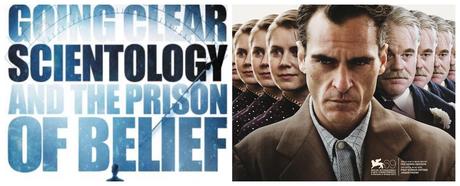
In the first half of the 2010s, Paul Thomas Anderson's cinematic tour de force The Master told a compelling, but ultimately fictionalized-just-enough-so-they-won't-sue-us version of Scientology's origin story. To actually name names would mean getting sued. In the latter half of the decade, documentarian Alex Gibney threw caution to the wind and not only exposed Scientology's dirty secrets through interviews with ex-members and smuggled out archival footage but also probed deep into the psychology of a cult. The pair make for a very interesting double-feature.
41. Little Women (2019)
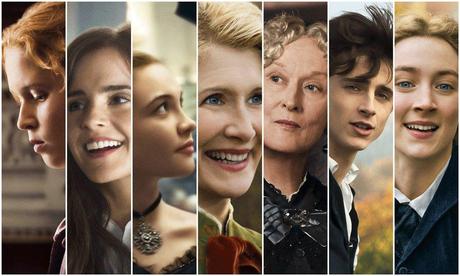
Recency bias, I know, but this Greta Gerwig adaptation has the feel of an instant masterpiece. Her stroke of genius is to take Louisa May Alcott's text and juxtapose the often joyous and optimistic stories of youth with the bitter and harsh experiences of adulthood, the two timelines happening concurrently before colliding to heartbreaking effect at the end. Add on top of that Gerwig's metafictional commentary about the plight of female creators - the ending, in particular, hangs a lantern on the exact same arguments May Alcott had with publishers while writing Little Women and Gerwig then had with the head of Sony Pictures while making this film - and you have an adaptation which brilliantly argues that this story, though it may take place in a different century, is as pressing as ever.
40. A Quiet Place (2018)
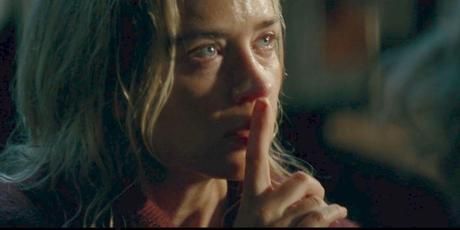
One of the trends of the decade was the cinematic gimmick. It's not surprising considering we opened in an era of post- Avatar 3D madness. However, as the worldwide box office exploded in importance and the number of at-home viewing options multiplied like Tribbles the pressure fell on filmmakers to search for ways to create movies that felt like primal experiences, the kind that could travel anywhere in the world and still be understood and feel like a thrill-ride. A Quiet Place - even with its story that falls apart the second you leave the theater - did that better than anyone. It offers a family-under-siege-at-the-end-of-the-world story, but it does so by weaponizing silence against the audience. Imagine a world where screaming in pain when you accidentally step on a nail means instant death via some unseen monster. A damn fine gimmick elevated by captivating central performances from Emily Blunt and husband/director Jon Krasinski.
39. They Shall Not Grow Old (2018)
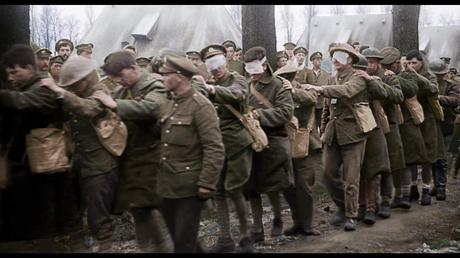
We've lost an awful lot of good directors to the George Lucas Disease - that all-too-familiar condition where a storyteller's experiments with new technologies eventually morph them into a person who goes looking for stories that can be used as tech showcases instead of stories that have humans and emotions worth exploring. Modern examples include Robert Zemeckis, Ang Lee, and James Cameron.
Peter Jackson - B-movie filmmaker turned CEO of his own industry-leading SFX company Wetta Digital - seemed to be going down that same road, but then the Imperial War Museum in Britain offered him access to a vast archive of undeveloped footage and asked him to make a documentary out of it. The result is a doc unlike anything we've ever seen before, one that uses cutting edge SFX to restore and colorize WWI footage, making men who died over a century ago feel as alive but doomed to historic circumstance as anyone in Sam Mendes' 1917. A truly moving viewing experience.
37-38. Once Upon a Time in Hollywood (2019) / Phantom Thread (2017)
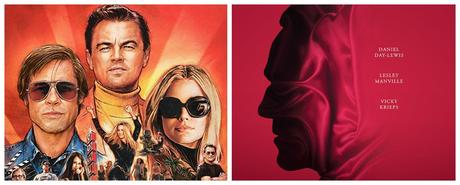
Once upon a time, Paul Thomas Anderson was the new Tarantino. It was 1997. He'd just made the critically adored Boogie Nights whereas Tarantino's Pulp Fiction follow-up Jackie Brown floundered at the box office and confounded critics. Hollywood had a new It guy who was surely going to make some of the most important films of the next 20 years, and as for Tarantino maybe he was just a one-trick pony, the video clerk who had some clever ideas about non-linear storytelling.
It didn't quite work out that way, at least not at the box office. Anderson backed away from the showy, Scorsese-aping conventions of Boogie and carved out a career as a painterly filmmaker with limited commercial prospects but a stellar reputation with cinephiles and Tarantino turned into a genre tinkerer, showman, and bonafide hit-maker. Still, the two are linked in my mind as examples of 90s LA film brats who take very different approaches to their art, which is why it's so interesting to see where they ended the 2010s.
At the close of the decade, Tarantino made his first movie about Hollywood and turned it into a typically problematic, but ultimately exhilarating fairy tale and highly personal story of men-in-transition. Anderson, on the other hand, offered in Phantom Thread a rather revealing peak inside his mind, particularly his view on relationships and marriage, but he did so in a way that doesn't have to be read as autofiction. Anderson's most directly autobiographical work came at the start of his career, not at the end, whereas it took Tarantino 8 films before he finally made his 8 ½, or at least as close as he'll likely ever come to it. They're both ultimately speaking to us through genre and take entirely different routes toward making their point, but by the end of the 2010s, it was a joy to see them each in their element.
36. Grand Budapest Hotel (2014)
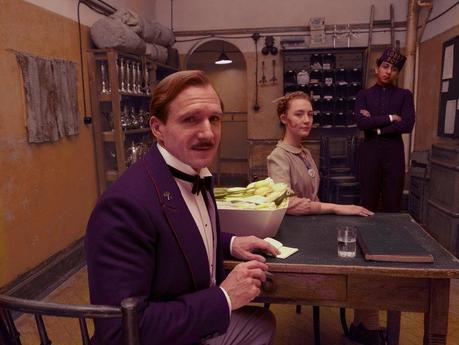
All cards on the table: I am not a Wes Anderson stan. His style - centered framing, 60s pop song needle drops, emotionally stunted characters, picture book fashion - usually strikes me as either feeling too cute by half or entirely too predictable. Others would argue he is a genius. Either way, he managed to appease both his critics and devotees with Grand Budapest Hotel, the most accessible and commercially successful work of his career, one which taught the world the following: Ralph Feinnes is hilarious. No, seriously. His performance as the increasingly unhinged hotel manager in Grand Budapest is easily one of the funniest of the decade.
34-35. Hell or High Water (2016) / Sicario (2015)
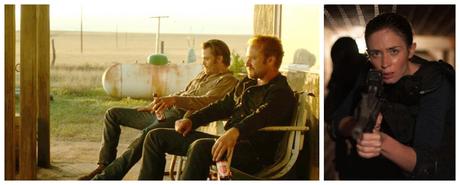
If you are a cinephile, the latter half of the 2010s was a time of wondering how many great movies we were missing out on since so many filmmakers jumped ship to TV. Were we missing out on the next great David Fincher masterpiece because he was busy directing House of Cards and Mindhunter? Or does the concept of a movie masterpiece seem almost quaint in an era increasingly defined by serialized storytelling?
You see this trajectory with Taylor Sheridan, an actor-turned-director/writer who made big waves with his 2015-17 run of Sicario, Hell or High Water, and Wind River (he wrote all three but only directed Wind River). Then he closed the decade as the co-creator of Paramount Network's hit series Yellowstone, directing and writing every first season episode and co-writing most of the second season. Luckily, he has a new movie due in 2020, but wherever he goes I am down for his unique take on the modern western, pitting lone heroes like Sicario's Emily Blunt and Hell or High Water 's Chris Pine against forces entirely beyond their control. The Old West is gone, but Sheridan's new frontier of ruthless drug lords and corrupt governments seems more daunting than anything John Wayne ever stared down.
33. Thor: Ragnarok (2017)
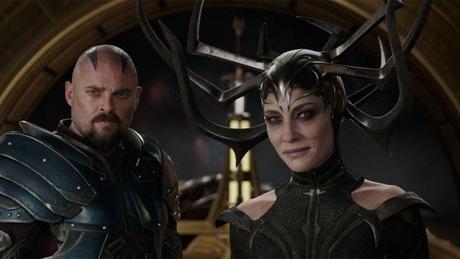
More so than any other Marvel franchise, the Thor films always felt as if they were searching for their voice. Kenneth Brannagh brought Shakespearean gravitas, dutch angles, and shiny surfaces to the first film. Alan Taylor basically did Game of Thrones but with Thor characters for the second film. The differing approaches had their pros and cons but the net result was a couple of films most people skipped.
Ragnarok, however, was a huge hit, in large part because in Taika Waititi Marvel finally found the director with the right voice for the franchise. They'd been trying so hard to establish Thor as their serious fantasy franchise when they had a cracking buddy comedy staring them in the face the entire time. The Thor comic books often detour into the downright weird, and that wasn't something Brannagh nor Taylor had the gumption to seriously tackle. Waititi lives and breathes that kind of thing, and he collected the perfect cast - Cate Blanchette as Hela! - to deliver an endlessly entertaining bit of blockbuster fun and likely the closest thing to a Planet Hulk movie we'll ever get.
32. Baby Driver (2017)
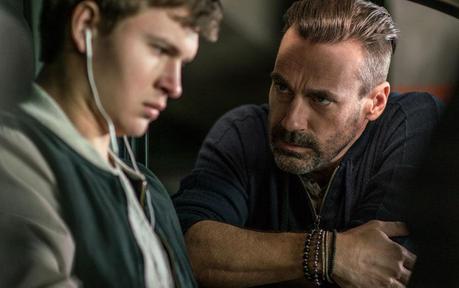
While promoting Baby Driver, Edgar Wright often observed that when most directors doggedly pursue their passion project it's usually the most personal and deeply felt work of their career. Not him, though. As he'd self-deprecatingly joke, his passion project - the one he pursued after being fired from Ant-Man - was a kickass thriller about a getaway driver, a line of work and lifestyle with which he has no firsthand experience. However, Wright had some grand ideas for how to marry pop songs to getaway scenes and a perfect B-movie story about a kid suckered into the life and looking for a way out. God bless Wright's movie-loving heart. Passion projects rarely feel so thrilling.
31. Black Panther (2018)
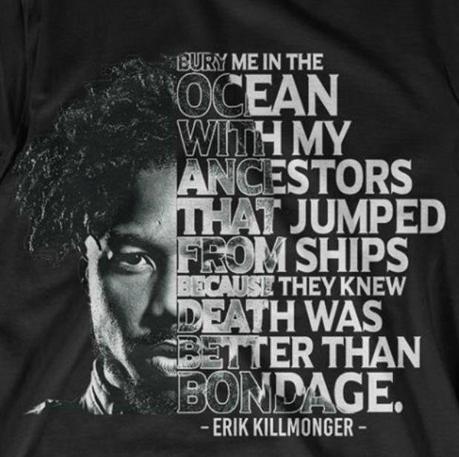
When considering a film's cultural impact, it often comes down to this: after several years have passed, does it feel less like a singular movie and more like an amorphous part of pop culture? Black Panther feels like the latter now. Every time a government website accidentally lists Wakanda as a real place or an NFL player tricks NBC Sunday Night Football into believing their college alma mater is Wakanda U it's a reminder of what Black Panther meant to people and just how much its concept of a black utopia took off in the popular imagination. Writer-director Ryan Coogler pulled this off by perfectly mixing superhero mythmaking with social commentary. Superhero movies don't normally come with final lines as gut-wrenching as Killmonger's, "Bury me in the ocean with my ancestors who jumped from the ships because they knew death was better than bondage." I mean, damn!
Next time: #11-#30.
What films would be on your list? Let me know in the comments.

